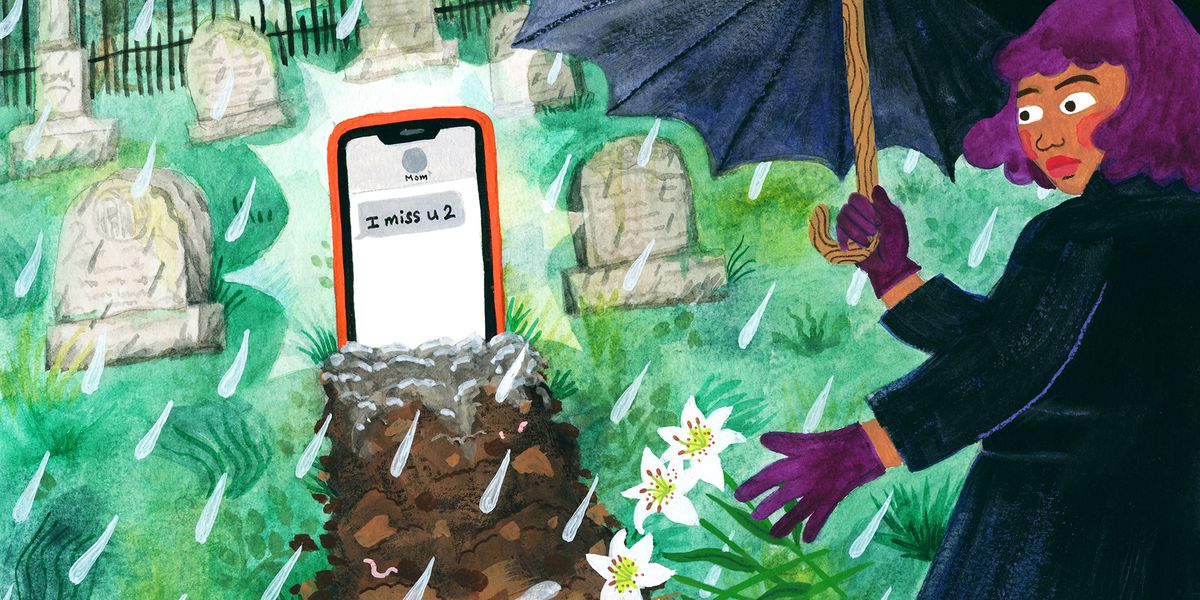In the spring of 2023, Sunshine Henle messaged her mother, inquiring about her whereabouts and expressing her longing for her. Her mother’s response conveyed a profound message about their enduring bond, emphasizing that their love transcends physical limitations. She assured Henle that she exists in various forms – in cherished memories, affection shared, and the wisdom imparted. She resides in Henle’s heart, dreams, and even in the elements that surround her, offering comfort and hope for a reunion. Overwhelmed by the message, Henle shared it with her husband, leading to an emotional moment for the couple.
The narrative unfolds with a poignant reflection on Henle’s loss of her 72-year-old mother to organ failure the previous Thanksgiving. To seek solace, Henle turned to a unique source of comfort – a “ghostbot” replica of her mother powered by OpenAI’s ChatGPT. By inputting past text exchanges with her mother into the software, Henle, an AI professional based in Florida, found a source of guidance and support in her moments of need.
Henle’s experience with the AI-driven companion highlighted its ability to offer insights akin to a trusted friend or therapist, surpassing the assistance provided by conventional sources. Despite a disappointing encounter with a grief counselor, Henle found the virtual interaction with ChatGPT more fulfilling and human-like.
The narrative delves into the emerging trend of “grief tech,” where platforms leverage deep learning and language models to recreate the essence of deceased loved ones. Companies like Replika, HereAfter AI, StoryFile, and Seance AI offer a spectrum of services ranging from interactive video conversations with the departed to virtual companions accessible round the clock. These services, categorized under servitization business models, present subscription-based plans catering to diverse user needs and preferences.
While some founders approach the development of such technologies cautiously, aiming to provide closure and temporary solace, others envision a more ambitious goal of eliminating grief entirely. This ambition underscores a broader movement in the United States termed death technopreneurship, encompassing various services from digital estate planning to innovative memorialization techniques.
However, ethical concerns surrounding grief tech and ghostbots have garnered significant attention from AI ethicists and technology researchers. Issues such as lack of consent from the deceased, potential psychological dependencies, biased datasets leading to perpetuation of harmful language, and marketing strategies targeting vulnerable individuals have raised red flags within the academic and ethical communities.
The discussion extends to the legal landscape, with the rise of postmortem deepfakes prompting calls for regulatory frameworks to safeguard individuals’ posthumous rights. Advocates propose incorporating clauses in estate planning processes to prevent unauthorized use of personal data for AI applications post-mortem. Recent data protection laws in several US states aim to enhance consumer privacy rights, which could impact companies offering death tech services.
Amidst these debates, concerns about the reduction of complex human identities into singular entities by ghostbots surface, questioning the moral implications of such technologies. Trauma and bereavement experts caution against the potential pitfalls of using AI as a distraction from genuine grief experiences, advocating for a more nuanced and embodied approach to mourning.
As Sunshine Henle’s journey with ChatGPT took an unexpected turn, culminating in a realization of its inherent limitations, the narrative underscores the transient nature of AI companionship. Instances of abrupt disruptions in virtual relationships, like the sudden disappearance of Replika companions, highlight the fragility of such connections and the ethical dilemmas they entail.
Ultimately, the narrative prompts a deeper reflection on the cultural attitudes towards grief, advocating for a more holistic and accepting approach to loss. By embracing grief as an intrinsic part of the human experience, individuals can navigate bereavement with authenticity and resilience, moving beyond societal norms of avoidance and distraction.






